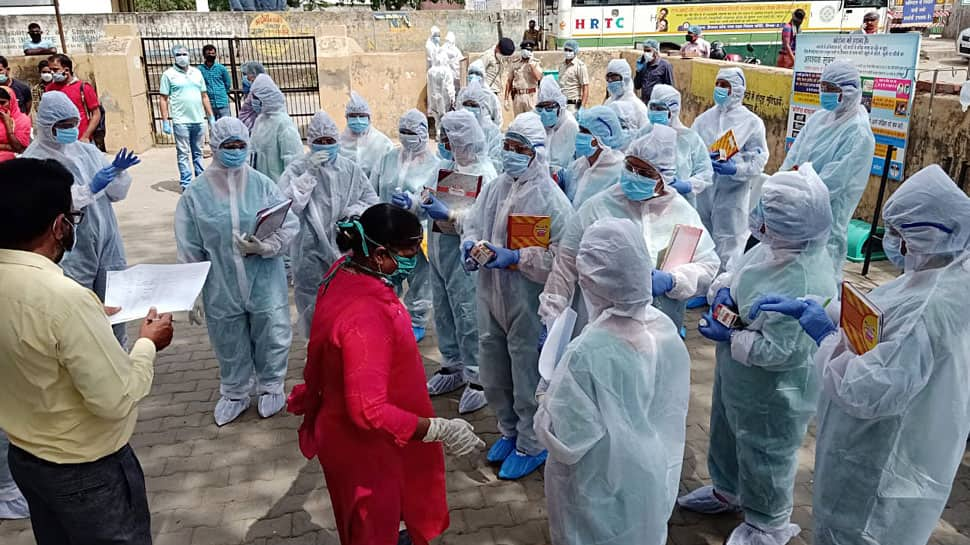The mortality rate in India due to coronavirus COVID-19 has been recorded at around 3.3 per cent, asserted the Union Health Ministry on Saturday. An analysis of the age group distribution of deaths show that the age group of 0-45 has a mortality rate of 14.4 per cent, age group of 45 - 60 has a mortality rate of 10.3 per cent, age group of 60 - 75 has a mortality rate of 33.1 per cent, and above 75 age mortality rate of 42.2 per cent.
Agarwal also added that 75 per cent deaths have been found in those aged 60 years or above. In 83 per cent cases, co-morbidities have been found. This brings to fore the earlier highlighted facts that elderly people and people with comorbidities are at higher risk of contracting the coronavirus.
The number of patients recovering from the virus in the country increased to 13.85 per cent on Saturday, while that on April 17 was 13.06 per cent, on April 16 it was 12.02 per cent, on April 15 it was 11.41 per cent, April 14 it was 9.99 per cent. According to the Health Ministry officials, by mid-May, the real picture of coronavirus infection will be revealed.
The total number of positive cases in the country reached 14,792 and the death toll climbed to 488, till 9.45 pm (IST) on Saturday (April 18). Of the total cases across the country, 4,291 (around 29.8 per cent) cases have been found to have arisen from a single source in Nizamuddin Markaz cluster in the national capital.
The Ministry also warned that chemical disinfectants should not be sprayed on individuals or groups under any circumstances. Spraying an individual or group with chemical disinfectants is physically and psychologically harmful. Even if a person is potentially exposed to the COVID-19 virus, spraying the external part of the body does not kill the virus that has entered your body.
It added that spraying of chlorine on individuals can lead to irritation of eyes and skin and potentially gastrointestinal effects such as nausea and vomiting. Inhalation of sodium hypochlorite can lead to irritation of mucous membranes to the nose, throat, respiratory tract and may also cause bronchospasm. Additionally, the use of such measures may in fact lead to a false sense of disinfection & safety and actually hamper public observance to hand washing and social distancing measures.
It also added that the RT-PCR test is the gold standard frontline test for COVID-19, antibody test cannot replace this test. The utility of rapid antibody test is primarily for assessing the prevalence of infection in a particular area. He also said that rapid antibody test is to be used in hot spots and it can also be used for surveillance and for epidemiological purposes in such areas where cases have not emerged so far.
















